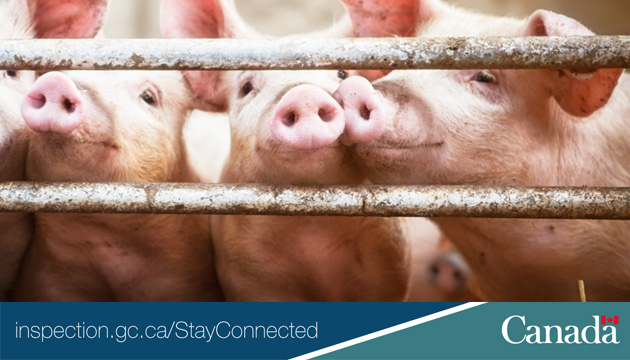The Canadian Food Inspection Agency (CFIA) is advising travellers from the Philippines not to bring pork or pork by-products.
The prohibition covers all types of pork regardless of whether it is fresh, frozen, processed or cooked.
The directive comes in the wake of the outbreak of African swine fever (ASF) in the Asian country.
ASF is a viral disease that has been ravaging pig industries in several countries, including China.
The Philippines reported its first cases of ASF in September last year.
The ASF virus is not harmful to humans, but it is devastating to pigs. It causes hemorrhagic fever in pigs that often ends in death.
There is no antidote or vaccine to the virus. The only known method to prevent the disease from spreading is through a mass cull or killing of affected animals.
The CFIA is the federal body dedicated to safeguarding food, animals, and plants in Canada.
According to the CFIA, the viral disease poses a “significant risk to the health of the Canadian swine herd, pork industry and the Canadian economy”.
“ASF is highly contagious for pigs and can spread rapidly though both direct and indirect contact with infected pigs or pig products, as well as contaminated farm equipment, feed and clothing,” the agency explains online.
ASF has never been found in Canada. It is a reportable disease under the Health of Animals Act.
“Whether you travel for work or pleasure, you have a role to play in preventing the spread of foreign animal diseases like African swine fever (ASF),” according to the agency.
The CFIA notes that people such as farmworkers, foreign exchange students or hunters who travel to countries infected with ASF could bring back contaminated food, clothing and equipment.
The CFIA lists the following suggestions on how travellers to Canada can help prevent the spread of the disease:
- Wash or dispose of all clothing and footwear worn while travelling to a country that is infected with ASF before re-entering Canada.
- Declare all animal and food products at the border: neglecting to do so could result in monetary penalties of up to $1,300.
- Declare it at the border if you've visited a farm abroad.
- If you've visited a farm in an ASF-infected country you should not visit a pig farm in Canada for at least 14 days.
According to the CFIA, the disease is routinely found in several African countries.
The disease has spread to several countries since 2007, affecting Europe and Asia.
To learn more, please visit: www.inspection.gc.ca/protect-pigs
(This story is sponsored by the Canadian Food Inspection Agency.)













